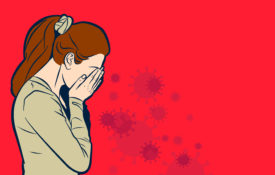-
Despite Warnings, Social Distancing Does Not Make Us Lonely
For months we’ve been reading warnings that the coronavirus pandemic could make us lonely. But now researchers have good news: people are more resilient than we thought. A new study published in American Psychologist has found that social distancing has not led to more loneliness. For the nationwide study by Florida State University College of Medicine, researchers surveyed more than 2,000 people before and during stay-at-home orders. This was part of a larger study on how we are reacting psychologically to the Covid-19.
-
The Learning Opportunities Hiding in Our Failures
Successes enjoy more attention than failures. We celebrate stories of triumph, and pore over them to extract the reasons why things went so well. Industries package the lessons and share them as tips for ‘best practice’, while after-dinner speakers regale their audiences with the steps they took to glory. By contrast, if they’re not buried completely, failures, and those who perpetrate them, are more often seen as sources of shame or ignominy. Yet it is often the errors, missteps and outright flops that contain more useful practical information on how to do things better, if only we were more willing to share and study them.
-
Adam Grant on How Jobs, Bosses and firms may improve after the crisis
APS Member/Author: Adam Grant IN 1993 THE management guru Peter Drucker argued that “commuting to office work is obsolete.” As of last year, his vision hadn’t quite come true: nearly half of global companies in one survey still prohibited remote working. Then the pandemic hit. Suddenly millions of people started doing their jobs from home. Work will never be the same. Yet the changes to where we work are only a small part of the story. The experiences from past recessions and crises suggest that covid-19 is likely to transform three features of our work lives: job satisfaction, ethical leadership and trust. Start with our attitudes towards work.
-

New Content From Current Directions in Psychological Science
A sample of articles on risk for developing aggressive behavior, cultural evolution, adolescent depression, inequality among adolescents, memory and statistical learning, and how digital technologies impact emotions.
-

Contracting COVID-19: Lifestyle and Social Connections May Play a Role
New research proposes lifestyle, social, and psychological factors may increase the risk of contracting COVID-19. [July 9, 2020]
-
‘It Can Be Hard to Concentrate or Focus on Something Else’
After George Floyd was killed by police officer Derek Chauvin in Minneapolis, as three other police officers looked on, images and videos circulated via news and social media. Weeks earlier, video of Ahmaud Arbery’s killing[content warning: the linked post contains descriptions of graphic violence]went public, prompting the long-overdue arrest of the two white men who killed him. On social media, Black people expressed frustration that it took this graphic, viral video — shared widely by white people — to get justice. Both deaths reignited debate over the dissemination of images and videos depicting dead Black people, and the trauma they inflict on Black people who see them.

